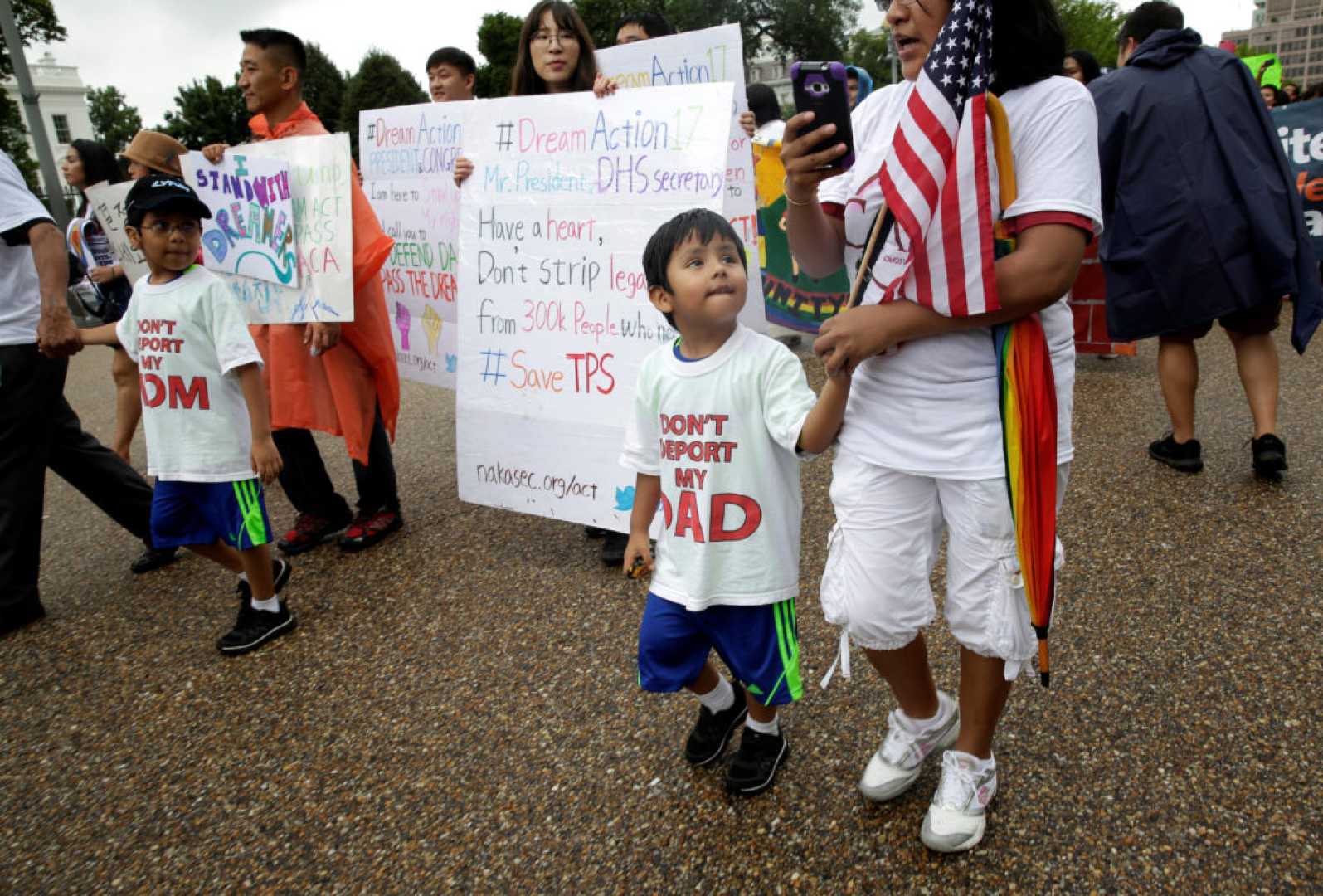News
US Extends Temporary Protected Status for 234,000 Salvadorans

MIAMI (AP) — More than 200,000 Salvadorans who have lived in the United States for over two decades can legally remain for another 18 months, the Department of Homeland Security announced Friday. The extension, part of the Biden administration‘s immigration policy, cites environmental conditions in El Salvador that prevent safe returns.
Temporary Protected Status (TPS) was created by Congress in 1990 to shield individuals from deportation to countries facing natural disasters or civil strife. The program grants work authorization in increments of up to 18 months. Salvadorans, one of the largest TPS beneficiary groups, were granted protection in 2001 after devastating earthquakes struck their homeland.
About 1 million immigrants from 17 countries, including Venezuela, Haiti, Honduras, and Afghanistan, are currently protected under TPS. The extension for Salvadorans, set to expire in March 2025, now runs until Sept. 9, 2026. The decision comes amid ongoing pressure from advocates to expand protections for other nations, such as Guatemala and Ecuador.
Conservative critics argue that TPS renewals have become routine, regardless of conditions in beneficiaries’ home countries. The program does not provide a path to citizenship, leaving recipients reliant on periodic government renewals. DHS justified the extension for 234,000 Salvadorans by citing geological and weather events, including significant storms and heavy rainfall in 2023 and 2024 that exacerbated damage from the 2001 earthquakes.
Felipe Arnoldo Díaz, an activist with the National TPS Alliance, called the extension a “small victory” but expressed concern for other countries with expiring protections. “Our biggest concern is that after El Salvador, there are countries whose TPS are expiring soon and are being left out, like Venezuela, Nepal, Sudan, Nicaragua, and Honduras,” he said.
Remittances from Salvadorans in the U.S. are a critical economic lifeline for El Salvador, totaling about $7.5 billion annually. This complicates efforts to end TPS, especially given the close relationship between former President Donald Trump and El Salvador’s President Nayib Bukele. Bukele, known for his aggressive crackdown on gangs, has seen a dramatic reduction in homicides, from 6,656 in 2015 to fewer than 500 in 2024.
For José Palma, a 48-year-old Salvadoran living in Houston since 1998, the extension ensures he can continue working legally and supporting his family. “It brings me peace of mind, a breath of fresh air. That’s 18 more months of being protected,” said Palma, who sends $400 monthly to his retired mother in El Salvador. His wife is a permanent resident, and his four children are U.S. citizens, making him the only family member reliant on TPS.
The Biden administration’s decision underscores the ongoing debate over immigration policy, with Trump and his running mate, JD Vance, vowing to scale back TPS and pursue mass deportations if elected. Associated Press writers Marcos Alemán in San Salvador and Rebecca Santana in Washington contributed to this report.












